‘Romeo and Juliet’: Zia Mohyeddin’s adaptation of Shakespearean play is reminder of timeless tragedy
An Urdu translation of the play saw a houseful of people longing to see a love so strong fail in front of them
KARACHI:I was 14 when I first read Shakespeare’s “most romantic” play. It was a simplified version in a school textbook that I read in advance, out of curiosity, to take in the most sacred form of love everyone would talk about around me. Even though I didn't understand it to the fullest, it made me feel butterflies and heartache – to the extent one can at that age.
After reading it many a times and watching movies inspired by the classical play, I watched it for the first time at the National Academy of Performing Arts (NAPA) on Thursday evening. While I’ve grown out of certain exaggerated teenage emotions in the past years, it’s safe to say that every person in the auditorium, including me, related the experience in front of them to a love – no matter how mature – of their own that didn’t live enough to see the light of the day again.
Such is the case with a timeless tragedy like Romeo and Juliet and the Zia Mohyeddin directorial was a reminder that such tales repeat themselves like clockwork in every age and time. It stays relevant and continues to leave a mark on people regardless of how far we’ve come in terms of spaces and progress.
And that is why, a tale told a million times in a million different ways, still held a houseful on almost all days of its run time in a country where theatre is seldom given the same attention. In fact, hungry to witness a love unmatched, the public demand convinced the institution to set an extra matinee show on Sunday afternoon before closing the show.
The stage play began with the loud voices of swords clashing against each other. Introducing longtime enemies, Montagues and Capulets, the play went on to show its light – Romeo (Ali Sher). After successfully establishing the young hero’s playboy avatar, it showcased how every bone of his existence wishes to remain neutral about the feudal clash between his family and the Capulets.
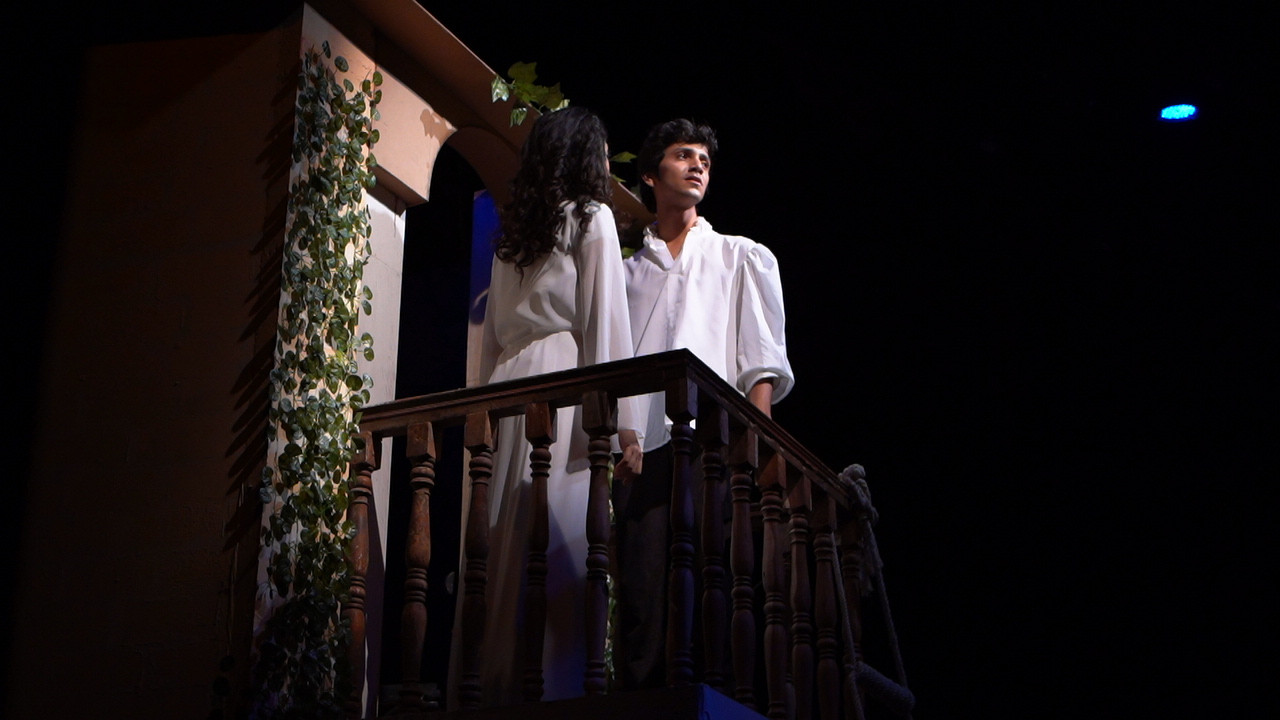 Talking about peace and love, the carefree boy along with his friends goes on to an enemy party where he fraternises with the enemy’s daughter, Juliet (Noureen Gulwani) and decides for her to be the love of her life. All things forgotten then, the night becomes the longest profession of love with the infamous balcony scene in place.
Talking about peace and love, the carefree boy along with his friends goes on to an enemy party where he fraternises with the enemy’s daughter, Juliet (Noureen Gulwani) and decides for her to be the love of her life. All things forgotten then, the night becomes the longest profession of love with the infamous balcony scene in place.
The said scene is a particularly hard one to reenact given the heavy humorous wordplay in Shakespeare’s original script and yet, Gulwani and Sher under the direction of Mohyeddin managed to master the dramatic feel it warrants. The dialogues were a perfect blend of cheesy and romantic to lure in the audience. Whenever Sher went flat with his stiff body language and a monotonous tone, Juliet’s cry for love balanced the scene.
The play then quickly picks up pace with their love being secretly notarised to Juliet’s brother’s demise by the hands of her new husband. Romeo becomes an expatriate and Juliet goes to Friar to help her from a second marriage being planned by her family.
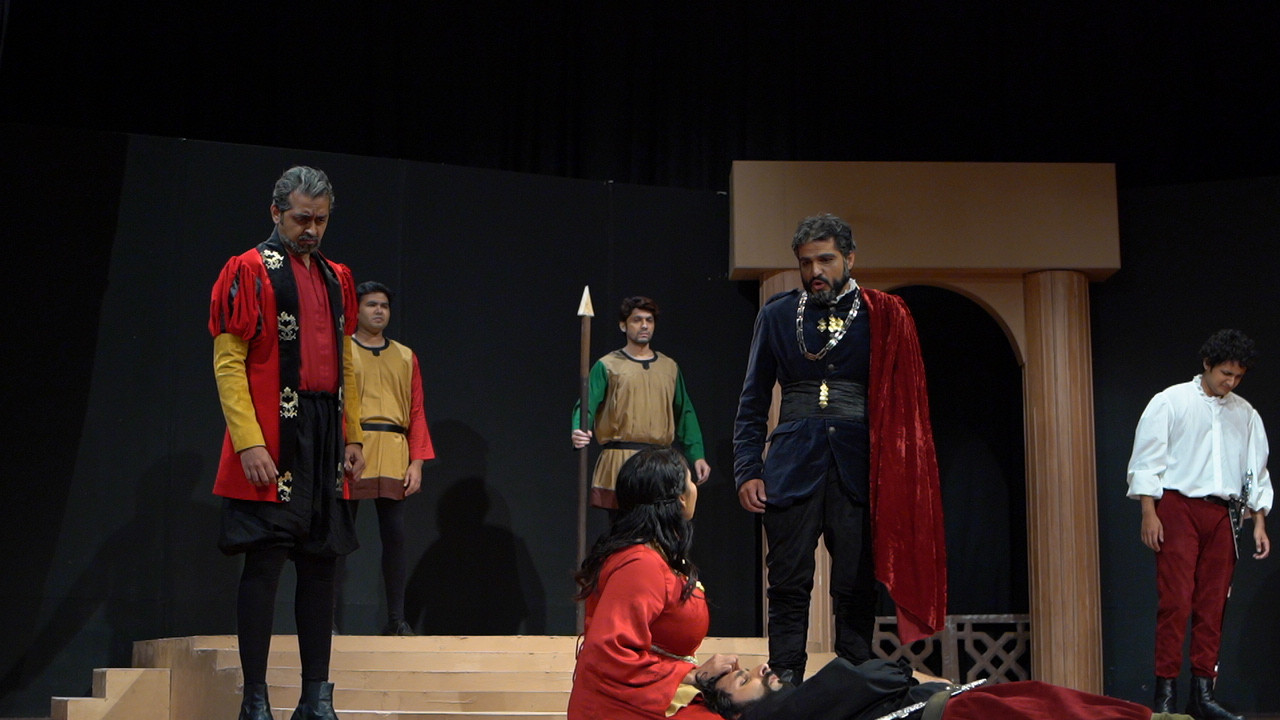
Then comes a trap of deceptions, misunderstandings and betrayals that leads to a graveyard with three bodies where none was intended in the first place.
The particular scene where Juliet begs her dad to not marry her off with Count Paris and in turn gets an ultimatum of being abandoned if not marriage by his choice garnered a lot of laughs from the audience. One reason for that could be the striking resemblance of Juliet’s dad’s behaviour with that of all desi parents who’d rather forcefully wed their kids to rich families or abandon them altogether rather than listen to what their children desire.
It was amusing how some serious scenes made the audiences laugh; it also signifies that the actor or the setup couldn’t bring out the emotion originally intended but maybe that’s just the trail of mergers with translations.
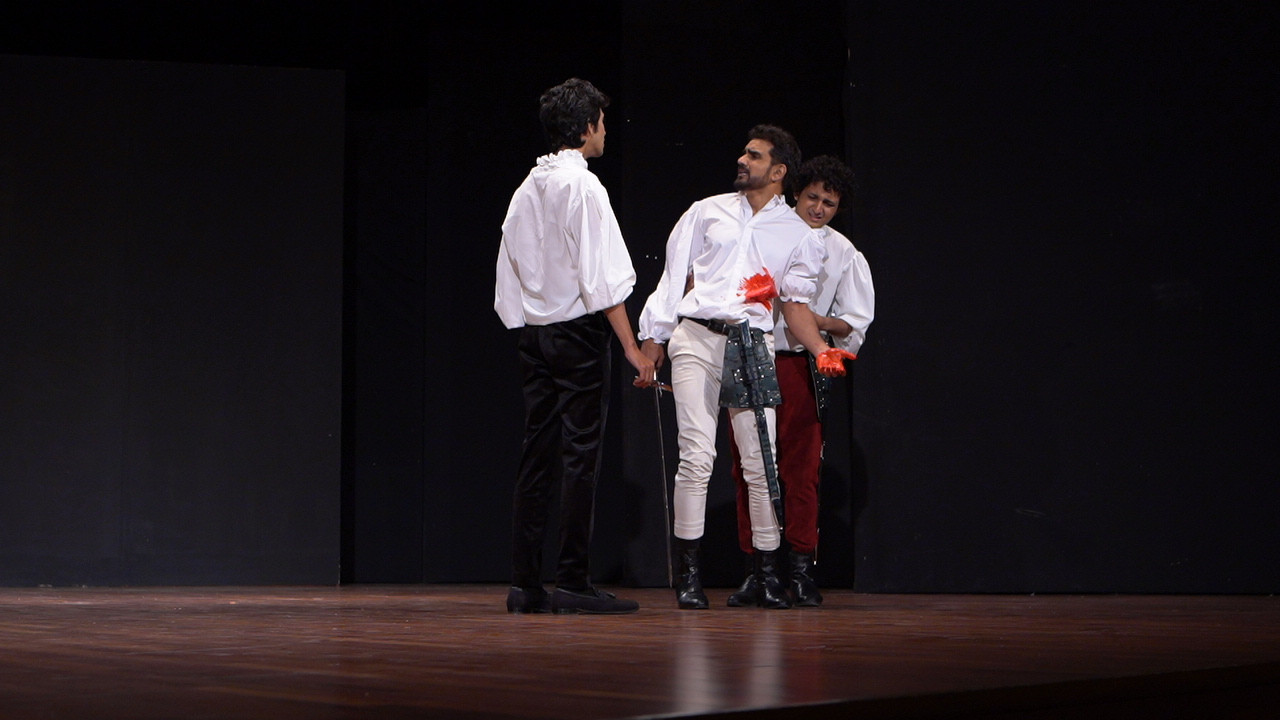
However, while the dialogues were perfect, if Sher and Gulwani had some actual chemistry to show, that would’ve taken the play to a next level. Moving on to performances that actually deserved a loud elongated applause; Fawad Khan’s Mercutio tops the list. Juliet’s nanny (Bakhtawar Mazhar), and Friar Lawrence (Samhan Ghazi) come next with their stellar expressions and dialogue delivery.
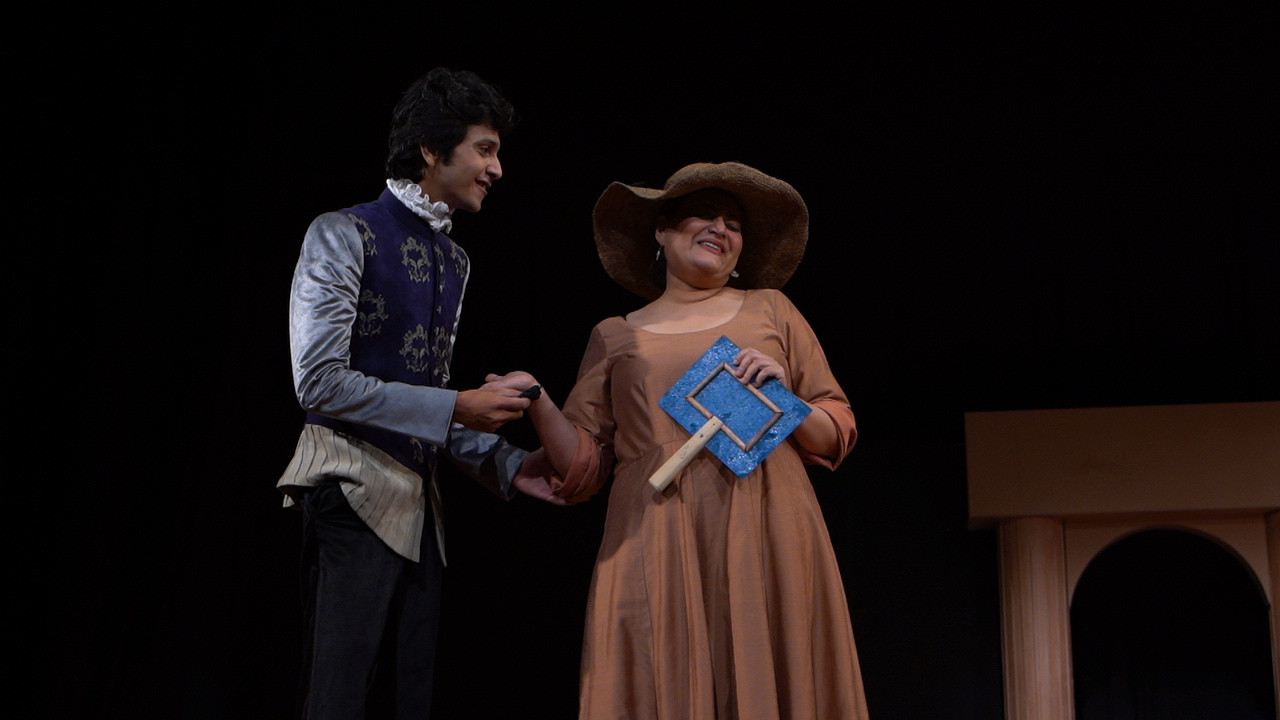
The Urdu translation of the play was an added bonus. “One reason for doing this play was because even the most illiterate person in this country knows of Romeo and Juliet,” echoed Mohyeddin’s powerful voice in a promo uploaded on the art school’s social media during promotions. It’s true. Even though we have our regional versions of such lamentable tragedies, Romeo and Juliet ofcourse holds a legendary status in the world of literature, and even amongst people who know nothing of literature.
Translating it in a language spoken by masses here only bridged the gap and allowed a more mainstream audience to drown in a pool of glory sprayed with a dust of misery. There’s a certain indescribable charm in listening to a dramatic tragedy in your native language. There’s more to feel, you could almost hear the combined vision of Khalid Ahmed and Mohyeddin in the performance, echoing the years of literary experience and the deep understanding of human connection.
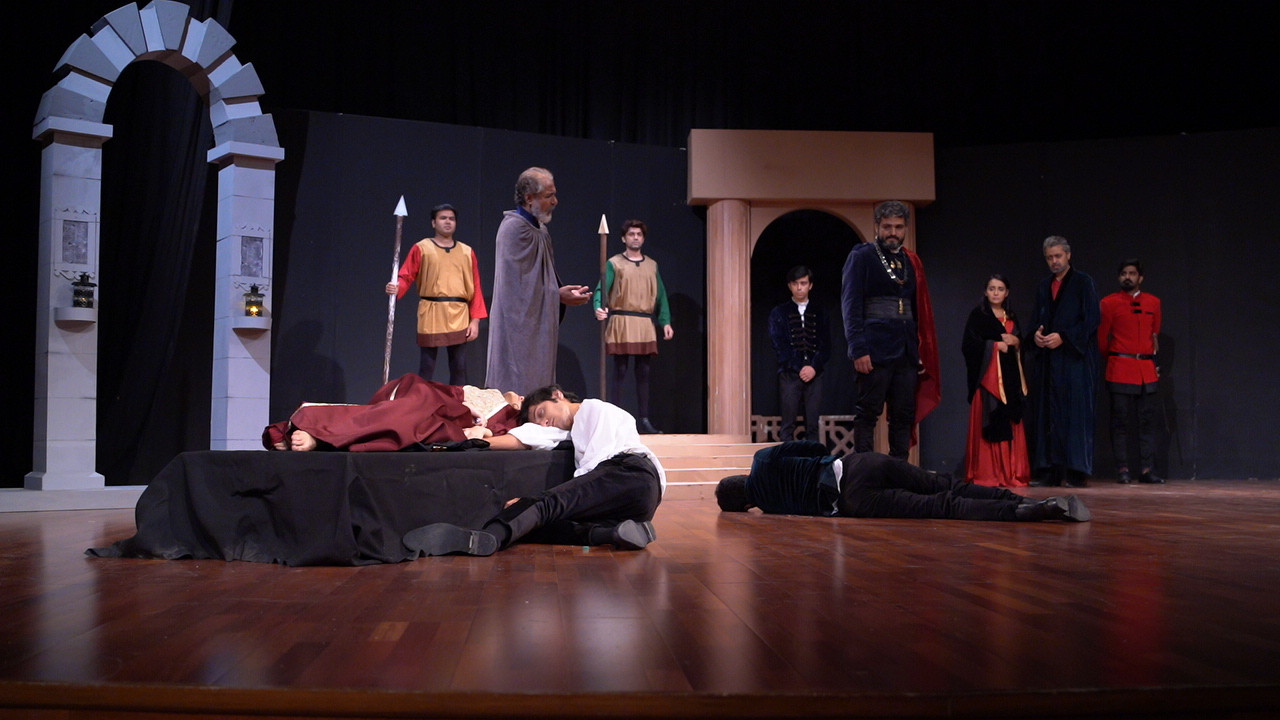
The play does not just resonate with people because of the sacrificial bond between two lovers separated by a generational long divide. It is because the story itself is an institution that embodies and mirrors a society that refuses to change despite celebrating and romanticising the story.
It’s because they know that when they step out of the auditorium, they’ll return to living their own versions of Capulets and Montagues, and Romeos and Juliets finding their Friar Laurence and kings hoping to mend their sectarian, tribal and other differences.

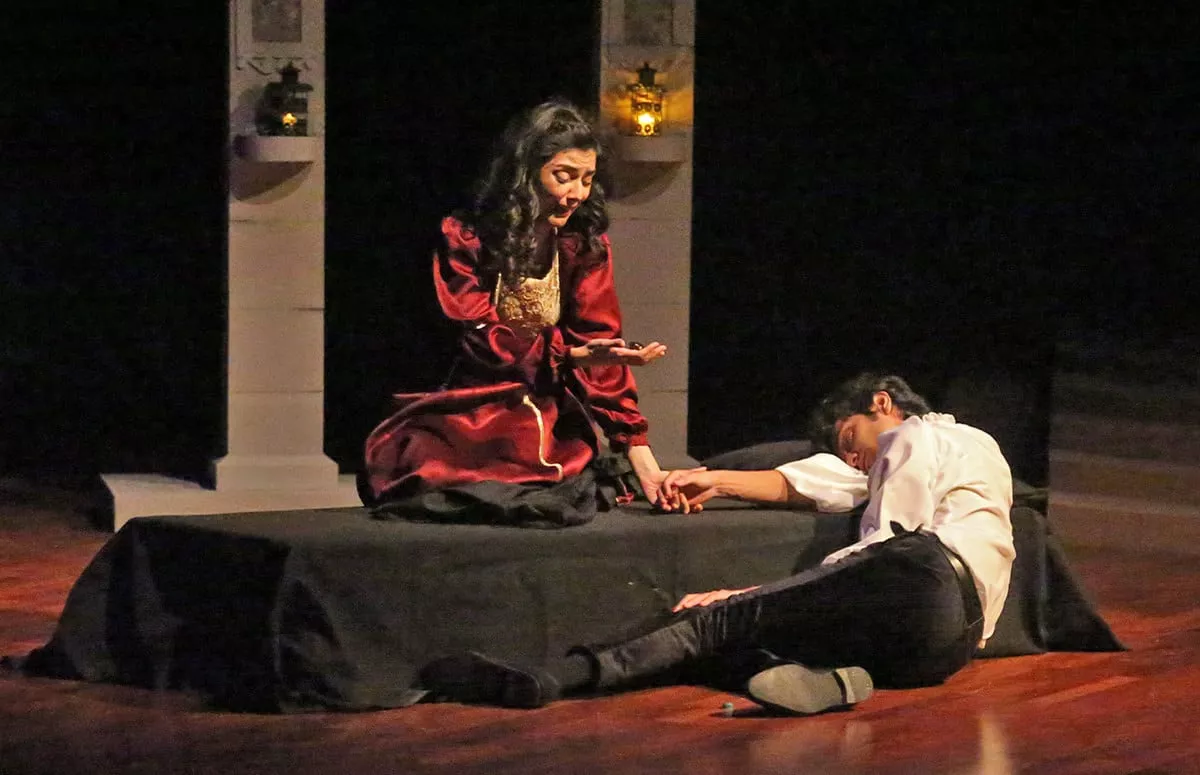
COMMENTS
Comments are moderated and generally will be posted if they are on-topic and not abusive.
For more information, please see our Comments FAQ